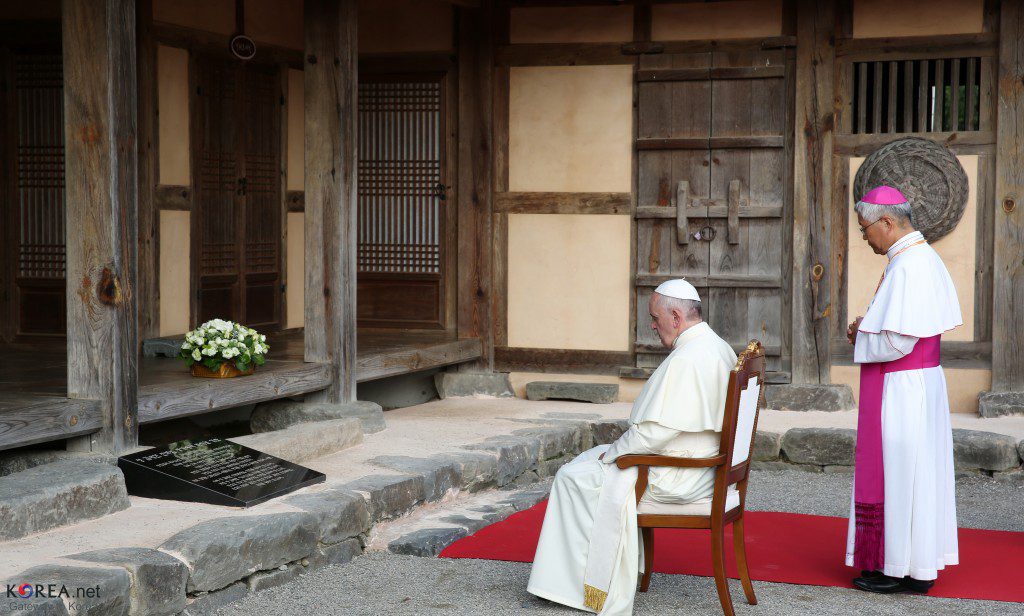
by Chris Lowney
Pope Francis just named the first-ever Cardinals from Cape Verde, Tonga, and Myanmar and was hailed for reaching out yet again to the world’s frontiers and peripheries.
Bravo for Francis. I applaud the instinct to diversify the range of voices among the Church’s highest ranks.
But Catholicism’s most exotic and challenging 21st century frontiers have nothing to do with geography. Inspired by Pope Francis’s constant encouragement to become a Church that reaches out to the peripheries, let’s consider three of many frontiers that we Catholics have not yet navigated successfully: YoungAdult-istan, Self-ylvania, and Cyberspace:
YoungAdult-istan: Look around your local church at mass next Sunday. If you live in the United States, most anywhere in Europe, Australia, or in many more countries, chances are very good that you won’t see many young adults. Your eyes are not deceiving you. Survey data shows that young adult participation in the Church’s life has been dropping steadily for years and is now falling precipitously in some countries.
Yet many Catholics still parrot old truisms like, “Don’t worry, every generation is like that. Once they have children they will come back.” Such comments show how lost we are in Young Adult-istan. Researchers have convincingly shown that this is not just a generational issue: many of these young adults (and the generation that follows) are not coming back unless we can figure out completely new approaches to this 21st century frontier.
Self-ylvania: One can recognize Self-ylvanians in various ways, all of them somehow self-referential. Many Self-ylvanians want to make their own decisions about what is right and wrong, rather than accepting a moral code simply because a church prescribes it. Or, they may “church shop,” quite readily dropping a Catholic church and joining another denomination that offers more relevant sermons, more invigorating worship styles, or more convenient worship times.
Self-ylvania’s population has been growing rapidly for decades, all over the world; but instead of figuring out how to navigate this terrain, we simply say, “You know, you really should not be from Self-ylvania, a place that is so self-referential and morally relativistic.” Well, that is what we Catholics believe, of course, but merely saying it in a judgmental way will hardly convince Self-ylvanians to join us. We Catholics know that we can only grow “by attraction” in the 21st century: let’s start figuring out how to attract folks enthralled by the culture in which we find ourselves, instead of continuing to watch so many millions of them walk away.
Cyber-space: Space was the “final frontier” on Star Trek. But while its intrepid explorers were willing to boldly go where no one has gone before, we Catholics still seem a bit reluctant to venture far into Cyberspace. To be sure, we have colonized its inner reaches, what used to be called, “Internet 1.0”: we post documents in Cyberspace to be download and read.
But useful though that is, most citizens in Cyberspace want two-way conversations and online communities; they find this on Facebook, Twitter, and dozens more places. To his credit, Pope Benedict XVI ventured onto the Twitter frontier, and the Papal Twitter following has exploded under Pope Francis. But, for the most part, Catholicism has not done enough to plant its flag on the Cyberspace frontier in creative and imaginative ways.
So what do we do about Young Adult-istan, Self-ylvania, and Cyberspace? For starters, we need a true “frontier mentality” to take root, a willingness to venture onto frontiers that are complex, changing fast, unfamiliar to us, sometimes unwelcoming, and where results will not come easily. The first generations of apostles had to work under similarly difficult conditions; let’s be worthier successors.
A frontier mentality will entail a massive culture change for our Church. Decades ago, Pope John Paul II called for “new methods and approaches,” yet very little has changed in our approaches. We must begin to encourage and promote pioneers who are willing to do imaginative work on the peripheries. We must start doing what most other great companies and organizations routinely do: experiment, monitor the results of new initiatives, quickly replicate successes and learn lessons from failed attempts, in all in all cases championing those who are willing to take risks over those who simply want to play it safe.
Pope Francis is not going to name a Cardinal to represent Cyberspace, YoungAdult-istan, or Self-ylvania. That’s why it’s now critical for every cardinal (and bishop, pastor, and concerned Catholic lay person) to begin championing these frontiers and navigating them more eagerly; if we do not do so, we cannot flourish as a 21st century Church.
 Chris Lowney, (@chrislowney) formerly a Managing Director of JP Morgan & Co, is author of Pope Francis: Why He Leads the Way He Leads, which was featured at the Patheos Book Club.
Chris Lowney, (@chrislowney) formerly a Managing Director of JP Morgan & Co, is author of Pope Francis: Why He Leads the Way He Leads, which was featured at the Patheos Book Club.












